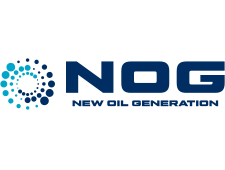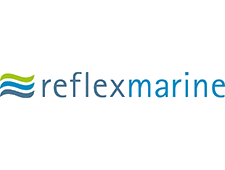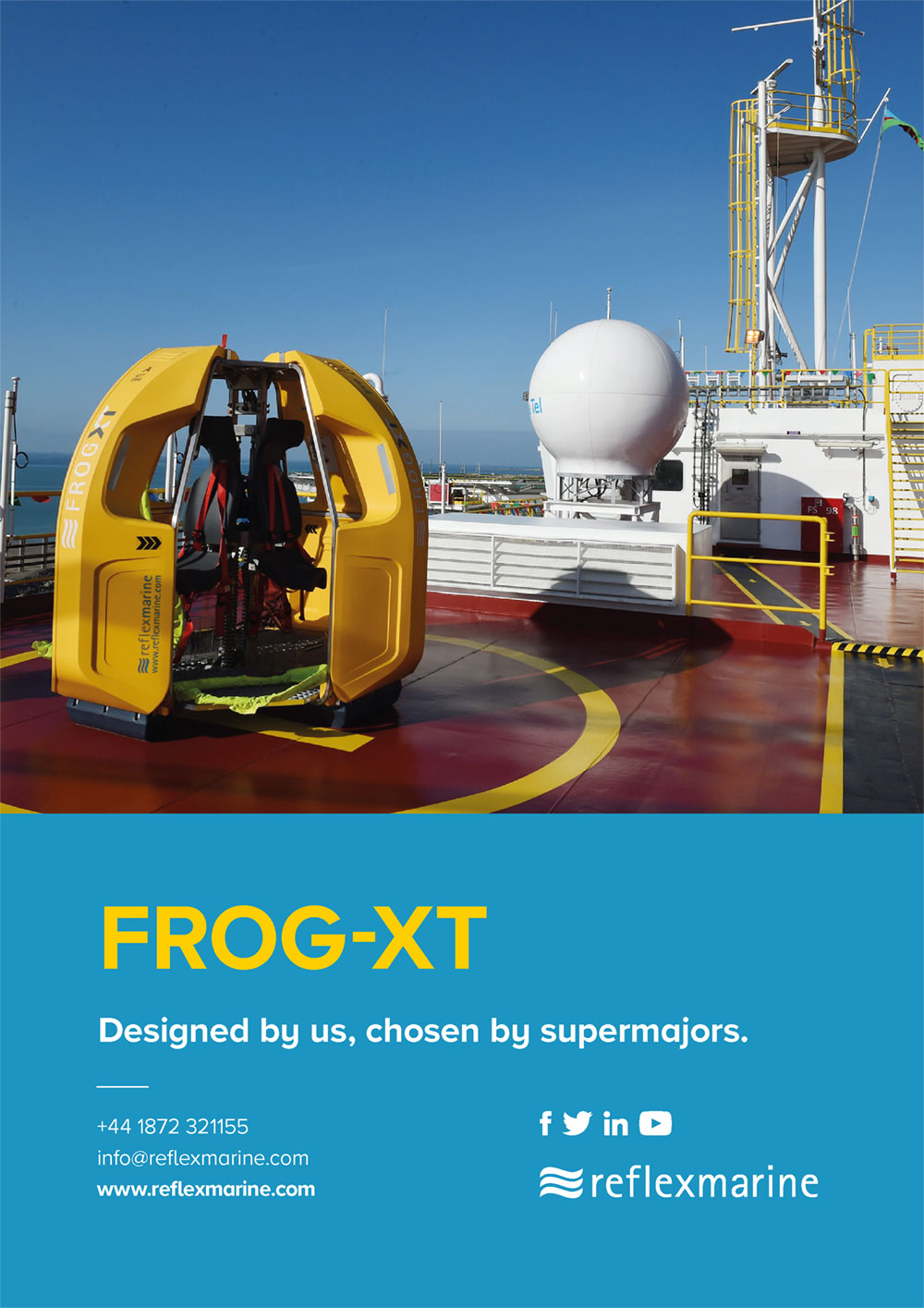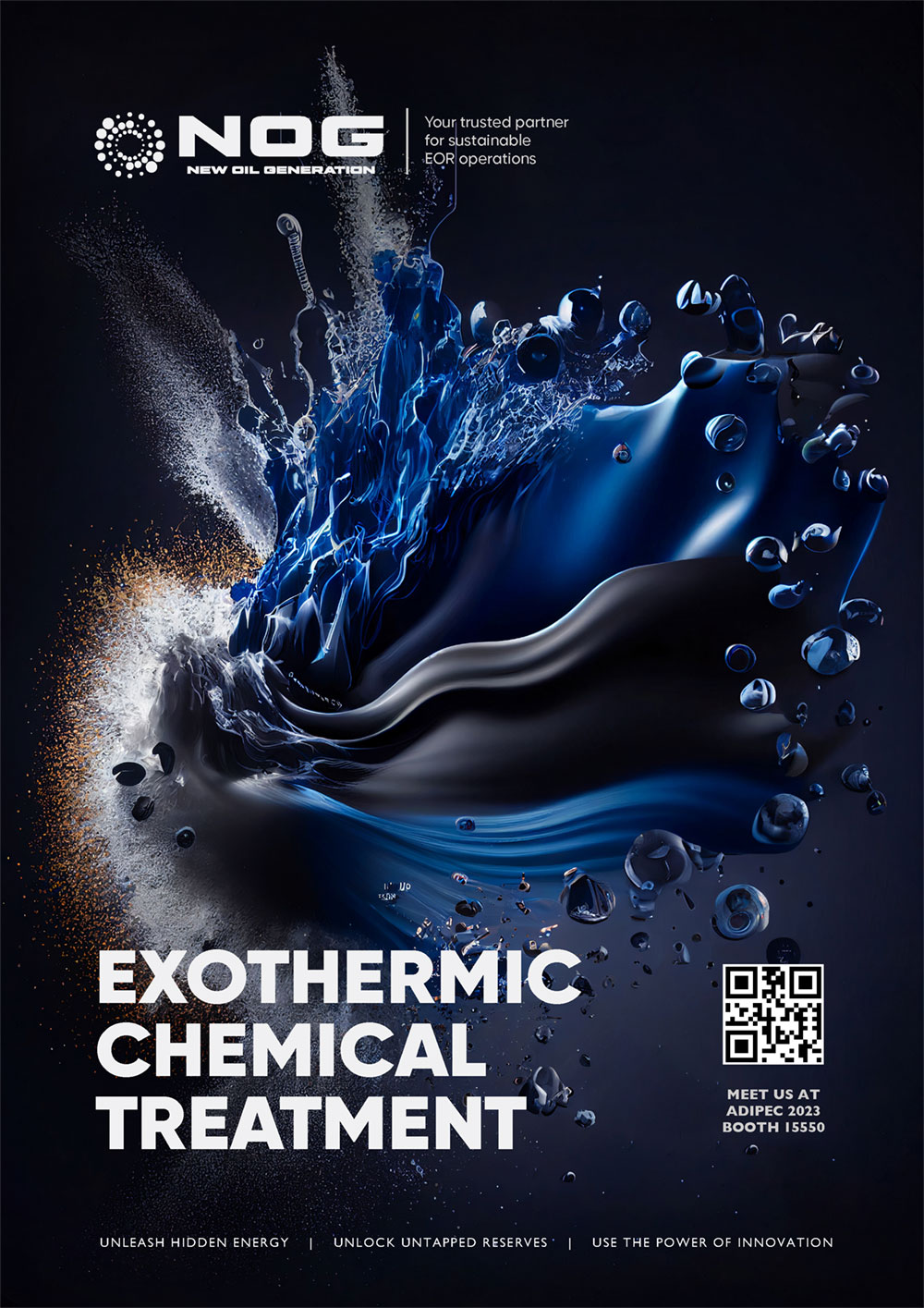ADIPEC
Decarbonise Faster, Together
Can the world’s largest and most influential energy exhibition bring together the wide energy ecosystem to drive realistic, sustainable, fast transition and decarbonisation? Energy Focus looks at the key messages and hot exhibitors from ADIPEC – the most anticipated event of the year.
Since 1984, ADIPEC has been a leading platform for discussion, innovation, knowledge sharing, and progress in the energy industry. In that time, the world’s energy conversation has changed considerably. Fuelling the development of society with fossil fuels is a concept that has been and is set to be gone, but the managed transition will take time. Renewable energy, closed loop systems, and driving down environmental impact is the new conversation – and the new source of opportunity.
In October, Abu Dhabi will again host the brightest, best, and biggest in energy from around the world, this year focusing on the question – how can we decarbonise, faster, together?
To answer the call as best as possible right now is an unrivalled list of speakers from the global community. Nowhere else in history has a more impactful group of industry peers joined to make things happen.
Abu Dhabi, the largest of the United Arab Emirates, will hold the event with ADNOC (Abu Dhabi National Oil Company) the official host company.
“ADIPEC is a powerful global platform that can help present the possibilities of a more inclusive approach by welcoming the solutions and skills of the energy industry today,” said His Excellency Suhail Mohamed Faraj Al Mazrouei, Minister of Energy and Infrastructure United Arab Emirates.
“ADIPEC 2023 will be a progressive force for energy transformation and leadership,” said Tayba Al Hashemi, CEO of ADNOC Offshore and Chair of ADIPEC 2023. “It will unite the expanding and increasingly diverse world of energy and help us work together to transform, decarbonise and future-proof our industry, by accelerating the innovation and tangible actions needed to enable a lower carbon and higher-growth future for the world.”
While the nature of conversations around the world’s energy mix have changed, the mix itself has remained relatively constant. While decreasing slightly, coal still makes up almost 37% of total electricity generation (40% in 1971). Natural gas makes up 23% and nuclear 10.3% (13% and 2% respectively in 1971), with oil the only fuel to significantly decrease over the period (21% in 1971 down to 2% in 2019). Renewables have gained traction climbing around 3% to reach 26% of global generating capacity.
But in the UAE, the often-overlooked progress has been phenomenal. Abu Dhabi-based Masdar, established in 2006, is now one of the world’s most significant renewable energy companies, pioneering wind and solar around the world. The UAE is home to the world’s three largest and lowest-cost single-site solar plants and the first Arab country to operate zero-carbon nuclear power that will supply 25% of the nation’s electricity demand by 2024. Also an early adopter of hydrogen technology, the region hopes to be a leader in this fuel of tomorrow. Today, as one of the world’s top contributors to the energy transition, according to the Gren Future Index 2023, Abu Dhabi is an example to follow.
WHO’S WHO
At ADIPEC, more than 160,000 people from more than 2200 companies will come together to define the future of energy. Guest speakers across the various conferences and sessions include Wael Sawan, CEO Shell; Patrick Pouyanné, CEO TotalEnergies; Dai Houliang, Chairman CNPC; Bernard Looney, CEO bp; Claudio Descalzi, CEO Eni; Roland Busch, CEO Siemens AG; Jeff Miller, President and CEO Halliburton; Alessandro Puliti, CEO Saipem; Sophie Hildebrand, CTO ADNOC; Ken Gilmartin, CEO Wood; Christina Verchere, CEO OMV Petrom; Dr Omar Farouq Ibrahim, Secretary General of the African Petroleum Producers Organisation, and many more.
Key topics up for debate will include new technology, decarbonisation through innovation, utilisation of modern energy finance, and advancing progress in developing markets.
Thomas Storch, MD at Affinity Partners, reminds that 775 million people – predominantly in the global south – still live without access to electricity. Innovation is the key to the problem, but innovation costs money. “Because the private sector is often reluctant to invest in technologies that are not yet proven, government funding plays a critical role in bridging the financing gap and accelerating the development of new technologies,” he said.
But government funding alone is not enough, and forming and rolling out public-private partnerships PPPs, while effective, takes time. “If we want to accelerate the energy transition, stimulating conversations and collaboration between the energy industry, the finance industry and global policymakers is essential. These dialogues have never been more important, as we increase our ambition to tackle the twin challenges of energy transition and energy security.
“Ultimately, while words and pledges can be impactful in signalling policy goals, finance and investment are the key drivers of a sustainable energy future,” says Storch.
Christopher Hudson, President of dmg events – organisers of ADIPEC – states that technology cannot be underestimated. “Critical to accelerating innovation in decarbonisation is technology. New and improved technologies will enable industries and companies to reduce emissions, improve efficiencies, reduce environmental impact, and enhance production, collectively allowing us to stay within the 1.5⁰C warming threshold set by the United Nations.”
Recognition that speed of progress has to be increased is essential and this is why dmg events decided to highlight decarbonisation as such a strong theme for this year’s event.
“By platforming the collaborative and innovative technologies that will be integral to a secure, lower-carbon future, ADIPEC 2023 is contributing to the advancement of decarbonisation in support of the global energy transition for a brighter and more sustainable future for all,” says Hudson.
CEO at Uganda’s National Oil Company, Proscovia Nabbanja agrees that progress must hasten but focus must be shared with developing nations which face added pressure from around reducing emissions at the expense of their own development.
“Supporting an equitable energy transition through clean energy in the developing world is crucial for combating climate change and achieving sustainable development,” she says. “These efforts contribute to poverty reduction, improved health, and inclusive growth. By investing in clean energy, developing countries can enhance energy security, decrease reliance on fossil fuels, create jobs, and foster economic growth. The international community, private sector, and governments must all play a role to support the energy transition in the developing world.”
WORLD LEADERS
Some of the world-leading companies demonstrating innovation at ADIPEC include Unique Group – expert in diving, buoyancy, unmanned surface vessels, and surveying – which is opening a new facility in Saudi Arabia to support growth in the Middle East, and Reflex Marine – the leader in offshore crew transfer technology by crane – which is launching its latest product range with improved safety and technical performance. New Oil Generation will also be displaying its new method of enhanced oil recovery through exothermic chemical treatment, retrieving heavy oil with unique chemical reactions. Global majors, including bp and Shell, continue to diversify product portfolios and investments and both are now more exposed than ever before to renewable energy sources, both in upstream and across the supply chain. The landscape is complex and remaining close to the conversation is now more important than ever for those looking to grow in the ever-changing sector.
You can sign up to register for ADIPEC here. And you can register as a delegate here.
This year, under the scorching desert sun, as the world continues its dynamic transformation towards sustainable energy solutions, ADIPEC stands as a beacon of hope, knowledge exchange, and collaboration, promising to unveil groundbreaking insights and innovations. Against a backdrop of rapidly shifting paradigms in the energy landscape, ADIPEC 2023 comes at a pivotal moment. As we navigate the complexities of an evolving industry, ADIPEC remains the compass that guides us toward a brighter and more sustainable future, driving the need to decarbonise faster, together.




